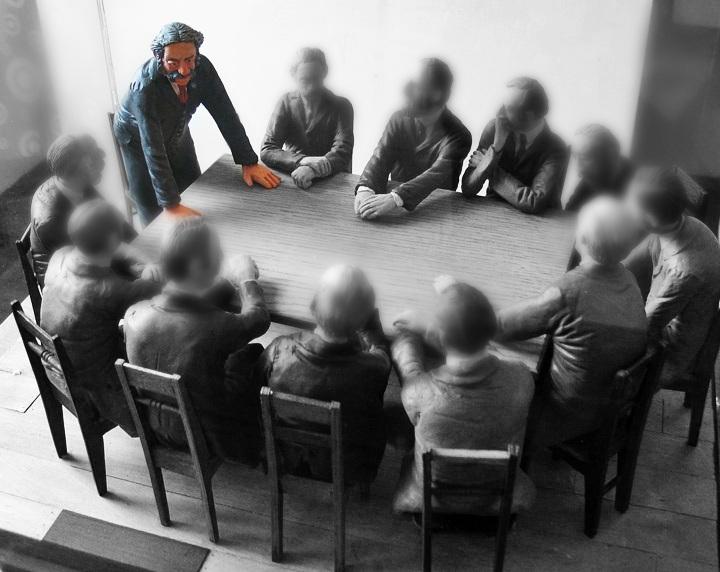Within The Last Juror is a story detailing the adventures of 23 year old Willie Traynor, a college dropout from Syracuse, Memphis. Willie enters a town named Clanton in Mississippi with hopes of running a small-town newspaper and making bank, eventually taking over their newspaper after it goes bankrupt due to the former owner’s incompetence. While running this newspaper, a widow named Rhoda Kasselaw is raped and murdered by a young drunkard named Danny Padgitt who afterward goes to jail. Willie then makes a fortune selling his exaggerated stories of the murder, making friends and foes because of it. One such friend is Miss Callie Ruffian, a well educated black mother of 8 living on the south side of Clanton who Willie would often visit for food and to talk about current events. Throughout the story Danny is tried several times in court and ends up serving a life sentence which is 10 years in Mississippi. After the life sentence nears its end, Danny is tried once again but while he's seated in the witness stand he is shot dead by a sniper. Following this is the death of Miss Callie due to a stroke.
Towards the end of The Last Juror I noticed that the title of the book was very vague and could have several meanings. The last juror could mean Miss Callie, who’s the only one of the three jurors that voted against the death penalty for Danny Padgitt that wasn’t murdered by the Padgitts. It could also mean Willie Traynor, although he wasn’t a juror he still performed actions similar to one. Through his newspaper he continually passed judgment on Danny Padgitt despite all the threats and acts of intimidation directed at him, and he alone endured all of this. Where other people would’ve faltered, he remained strong. A lone reporter.
When I first started The Last Juror I had a hard time warming up to the main character, Willie Trayor. He was a total loser; he was studying law at Syracuse but because of his excessive drinking he failed all of his classes which were funded by his grandmother. After 5 years at Syracuse he dropped out and became inspired by a movie about a reporter who dressed bad, drank more than he did and still managed to attract lots of beautiful women. So he grew a beard, grew long hair, drank even more, wore khakis and combat boots and tried scoring with more beautiful women. When that failed as well, his friend suggested running a small-town newspaper because that’s where the money is. Willie took him up on his suggestion and found himself in charge of the Ford County Times. (Pages 8-9)
What I find cool about Willie Traynor is that he goes through very little character development. He enters Clanton a rich, confident, fearless loser of a kid and leaves just the same. He got every limb of his dirty where other people wouldn’t dare risk a finger and he maintained this gall through everything that happened in the story. He took stabs at the most corrupt family in Ford County, and kept prodding even after those around him either died or became severely injured.
When reading the book there was a particular passage that appealed to me and that I could relate to,
“Clanton was changing, and I was not happy with its direction. Like most small towns in the south, it was sprawling in all directions with no plan for its growth, Bargain city was booming and the area around it was attracting every fast-food franchise imaginable. Down-town was declining, though the courthouse and the county government always draws people. Strong political leaders were needed, folks with visions, and they were in short supply.” (Page 445 Paragraph 2)
I grew up in the small town of Willamette, and as the years went by my favorite childhood stores would either go bankrupt or be bought out, being replaced with stores and restaurants that would cause those around them to also suffer the same fate. This growth finally ended with the implementation of a mini mall in the middle of our town. Sadly something like this can never be prevented.
At the end of the day I think this book serves as a good reflection of the south in the 1970s and was very enlightening about the world of law, as are all of John Grisham’s books. Several times the book has made me stop reading and think about events similar that have occurred in my life, for example the small town of Clanton being taken over by big businesses. Overall a good read.


